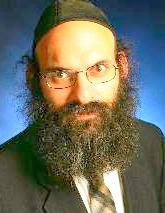Jewish Telegraph by Paul Harris The tragic case of Beth Schlesinger (Alexander) continues to play out in Vienna.
It is a human tragedy of the first degree, involving a young
Manchester mother scarcely being allowed any access to her four-year-
old twins, who quite obviously need her love and attention.
Beth, who is separated from her Austrian husband but divorced only in
Jewish law, has been denied custody by the Austrian Supreme Court.
As we have continually reported, the original decision to grant full
custody to her husband, Michael, was based on a flawed psychologist’s
report.
It suggested that she was mentally unstable — a conclusion reached
mainly because she was unable to respond rapidly enough to questions
fired at her in German, which is not her native language, and because
the court accepted the rumour, falsely propagated by a former friend,
that she was suffering from post-natal depression.
This is also a tale of intrigue, private detectives who have swapped
sides, a Jewish judge who was not involved in the case allegedly
discussing it with the presiding judge (according to Graham Stringer MP,
who raised the matter in the Commons last week) and lawyers summarily
dropping Beth as a client.
It is also a story of friends suddenly wanting nothing further to do
with her, and the apparent intransigence — even heartlessness — of the
Austrian legal system, which will not allow a young mother the
opportunity to present her side of the case.
The story thus far, when related by Beth, sounds like the stuff of the most far-fetched novels.
And those hearing it from her could be forgiven for accepting that she is deluded at the least and seriously disturbed at worst.
She is neither! Having researched the story extensively in Vienna and
met or spoken to most of the key players, I am shocked by what has gone
on and continues in the name of so-called Austrian justice.
I have covered tragic news stories and injustices of all types in
decades as a journalist, but never have I encountered a miscarriage of
justice on this scale, which is why I have become personally involved in
the case of Beth Alexander, with the full weight of the Jewish
Telegraph behind her campaign, until her beloved twins are returned to
her.
Those who have met her sons Sammy and Benjy confirm Beth’s assessment
that their educational development has been retarded by at least a
year. Apparently, at not short of five years old, they are unable to
communicate other than in disjointed words.
Both have lost a number of front teeth. Beth knows not how. Those who
have seen Beth with her twins report the youngsters’ sheer joy when
they are reunited on their oft-cancelled six-hourly Tuesday visits or
fortnightly Sunday reunions.
Beth has been forced by the Austrian system to pay nearly £50 each
time for a supervised handover. The access centre is closing next week
and so far no other facility has been agreed.
Her husband will not accept the offer of Chief Rabbi Paul Eisenberg
to facilitate access visits free of charge. Beth is presently faced with
not seeing the twins at all.[...]













